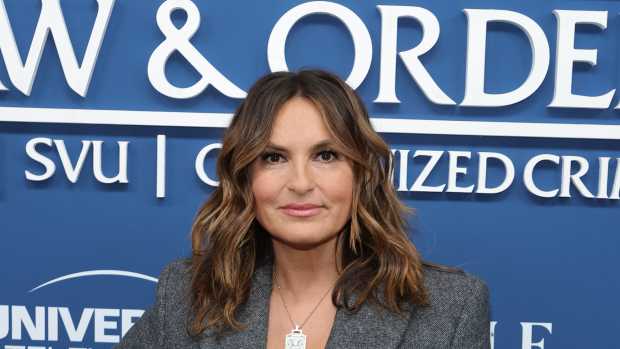
The hum of the fluorescent lights in the precinct, the relentless pulse of sirens in the distance, the stark, unforgiving gaze of a suspect across the interrogation table – for over two decades, these have been the enduring backdrops of Law & Order: SVU. But at the heart of its enduring legacy, woven into the very fabric of its identity, lay a partnership so profound, so intensely realized, that it transcended the screen: Detective Olivia Benson and Detective Elliot Stabler. Theirs was a bond built on an unspoken language, shared trauma, and an unwavering moral compass that pointed them, often fiercely, in the same direction. It was a partnership that, for actress Mariska Hargitay, was not merely a job, but a deep, personal connection. So, when Christopher Meloni, her Stabler, abruptly departed the series in 2011, Hargitay's raw, unvarnished confession – "I was devastated" – resonated with a collective ache that mirrored the void left both on screen and in the hearts of millions.
To understand the magnitude of Hargitay's devastation, one must first grasp the unparalleled symbiosis of Benson and Stabler. For twelve seasons, they were two halves of a formidable whole, their contrasting energies – Benson's empathetic intuition against Stabler's volatile righteousness – creating a magnetic pull that captivated audiences. Their scenes crackled with an unspoken understanding, a charged tension that suggested volumes left unsaid. It wasn't just good acting; it was an alchemy born of a genuine friendship and professional respect between Hargitay and Meloni that bled seamlessly into their characters. They navigated the darkest corners of human depravity together, leaning on each other through the psychological toll, their gazes often communicating more than any dialogue could. This wasn't merely a colleague; this was her professional anchor, her scene partner who knew her rhythms, her breaths, her very thought process.
The departure, sudden and shrouded in the typical opacity of network negotiations, felt like a gut punch. One day, Stabler was there, a pillar of the squad, and the next, he was gone, an off-screen transfer, leaving Benson – and Hargitay – unmoored. For Hargitay, the devastation wasn't merely the loss of a co-star or the professional challenge of adapting to a new dynamic. It was the rupture of a profound personal and creative bond. Imagine spending over a decade, day in and day out, in intense, emotionally charged scenes with another individual, building a shared history that few outside your unique profession could ever comprehend. Imagine that person being the one who understood the unique pressures, the triumphs, and the exhaustion of bringing such heavy material to life. Meloni's exit wasn't just a reshuffling of the call sheet; it was the sudden absence of a cornerstone, a gaping hole where a shared foundation once stood.
The echoes of Hargitay’s personal devastation were palpable in Benson’s on-screen journey. Suddenly, Olivia was alone, carrying the weight of the cases, the squad, and her own emotional burdens without her steadfast partner. The show, commendably, didn't shy away from depicting this void. Benson's isolation, her palpable sense of loss, and her struggle to adapt mirrored the real-life adjustments Hargitay had to make. For the audience, too, the devastation was a shared experience. The "will they/won't they" tension, the hope of a deeper connection, evaporated into thin air, leaving a collective sense of unfinished business. Fans mourned not just the character's absence, but the dynamic that had defined the show.
Yet, as is often the case in life and in long-running television, devastation can be a crucible for growth. Hargitay, though "devastated," channeled that raw emotion into Benson's evolution. Olivia, without Stabler, became the undisputed leader, the lone wolf, her vulnerability hardening into an steelier resolve, her compassion deepening, making her an even more formidable force. Hargitay's commitment and resilience in the face of such a monumental shift allowed the show to not just survive, but to thrive, forging a new path for Benson as an icon in her own right.
And then, a decade later, the extraordinary happened. Christopher Meloni returned, first in guest appearances, then leading his own spin-off, Organized Crime, creating a bridge back to the world of SVU. The reunion of Benson and Stabler was not just a narrative triumph; it was a remedy, a healing balm for the long-held devastation. Their on-screen reunion, fraught with years of unaddressed history and unspoken feelings, was charged with an almost unbearable emotional weight – a testament to the enduring power of their original bond. For Hargitay, it was not just the return of a character; it was the return of a partner, a friend, a piece of her professional and personal history. The circle, broken so abruptly, began to close, proving that some connections are so profound, so deeply etched into the soul, that even a decade of separation cannot diminish their light.
Mariska Hargitay’s "devastated" response to Christopher Meloni’s exit was far more than a public lament. It was the testament to an artistic partnership that transcended the screen, a genuine human connection abruptly severed, leaving a palpable void. Her subsequent journey, and the eventual, long-awaited reunion, illustrates not only the enduring power of a television phenomenon but, more profoundly, the resilience of the human spirit in the face of loss, and the irreplaceable nature of a truly special bond. It reminds us that even in the fabricated worlds of television, the emotions they evoke, and the connections they forge, can be devastatingly real.
